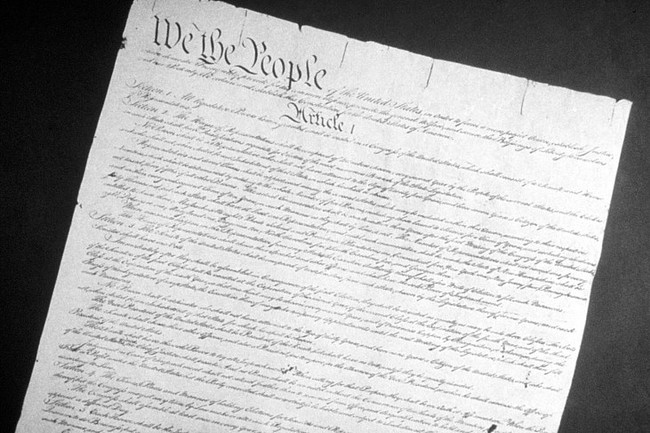
In his newly released book, No Democracy Lasts Forever, University of California law school dean Erwin Chemerinsky provides the latest in a series of unfortunate attacks on the United States Constitution.
Despite his academic accomplishments, Chemerinsky has put forward a thesis that is fatally flawed. While he asserts our Constitution fails to deliver democracy to the masses, this was never its purpose. Our Constitution provides a legal platform for a balanced and ordered liberty, not a majoritarian democracy. It was written to form a federal government, balance power among its branches, protect the smaller states from the larger states, and secure the individual rights of those governed.
While our Constitutional government includes democratic elements, democracy is not its goal. The drafters of the Constitution understood that unfettered democracy jeopardizes individual freedoms. While the collective values democracy, the individual prospers through liberty. Pure democracy empowers the masses to exercise their passions of the moment. A lynch mob is pure democracy set in motion.
In a column supporting his flawed thesis, Chemerinsky claims it’s absurd to rely on a document written for a small country in the 18th century to govern a large wealthy nation in the 21st. This flippant dismissal reveals his fundamental misunderstanding of the nature of the Constitution and those who wrote it. Unlike the scholars of today who reject the past, even while embracing academic fads such as the 1619 Project, the scholars of the late 18th century immersed themselves in the depth and breadth of what the history of Western Civilization can teach us. They built our Constitution on the foundation of this amassed wisdom.
Appreciating the gravity and responsibility of their opportunity to build a Constitutional republic and forge a new course for human history based on self-governance, the learned framers of our Constitution sought the best way to manage the affairs of human beings created by an unchanging God. So, they crafted a timeless Law of the Land that would serve those governed and withstand the ever-fluctuating course of current events. They understood that pure democracy could be just as dangerous in exercising the whims of a tyrannical majority as when following the dictates of a single tyrant.
With but a few amendments along the way, our fundamentally unchanged Constitution has served our country extraordinarily well for nearly 250 years. Under it, individual freedoms have expanded. Women vote, slavery was abolished, and civil rights are locked into law. Our country’s arc of history has undeniably bent towards justice for all. This speaks to the wisdom of the framers.
Chemerinsky cites contemporary disapproval as a reason to reject our Constitution, a sophistic argument that speaks only to his misguided infatuation with democracy. Even a cursory review shows public discontent with our Constitutional form of government has been cultivated not only in the halls of academia but by the popular press. For example, how many media-driven public opinion polls have we been subjected to showing public opinion is at odds with the Supreme Court, surveys which ignore the basic truth that it’s the Court’s job to consult the Constitution, and not public opinion when handing down rulings. Such sophistry writ large should not be taken by the rational as a rationale for dangerous change.
Chemerinsky also submits the Electoral College as damning evidence to indict our Constitutional republic. He argues that the Electoral College should be abolished because it denies the Presidency to the popular vote. This ignores the reality that a popular vote would effectively hand over the Presidency to a small confederacy of densely populated states, exactly the outcome the Founders sought to prevent. To this day, despite huge changes and population shifts, the Electoral College still assures the Presidency reflects a balanced representation overall. The Constitution’s enduring accommodation is a testament to the Founders’ wisdom, not an argument for its cancelation.
And who would we enlist to rewrite our Constitution? Who among us does Chemerinsky imagine could draft a constitution that would continue to secure and expand our personal freedoms for the next 250 years?
Our Constitution protects the rights of all, while our popular passions play out in courtrooms, the legislative halls, and on the streets. It guarantees our freedom of expression, including expressing the idea that the very document which guarantees such freedom is obsolete. But this guarantee should not be mistaken as a reason to endorse such notions but to enjoy the equally protected right to robustly debate them.
Liberty will never be an antiquated value, no matter how much our nation’s wealth and population grow. To abandon our Constitution is to abandon our liberty. After all, no American is famous for declaring “Give me democracy or give me death!”
Eric Hogue is the current president of Colorado Christian University, where he previously served as vice president of University Advancement. Hogue has a Master of Arts in Theological Studies from Liberty University and a Bachelor of Science in Business Administration from William Jessup University.
